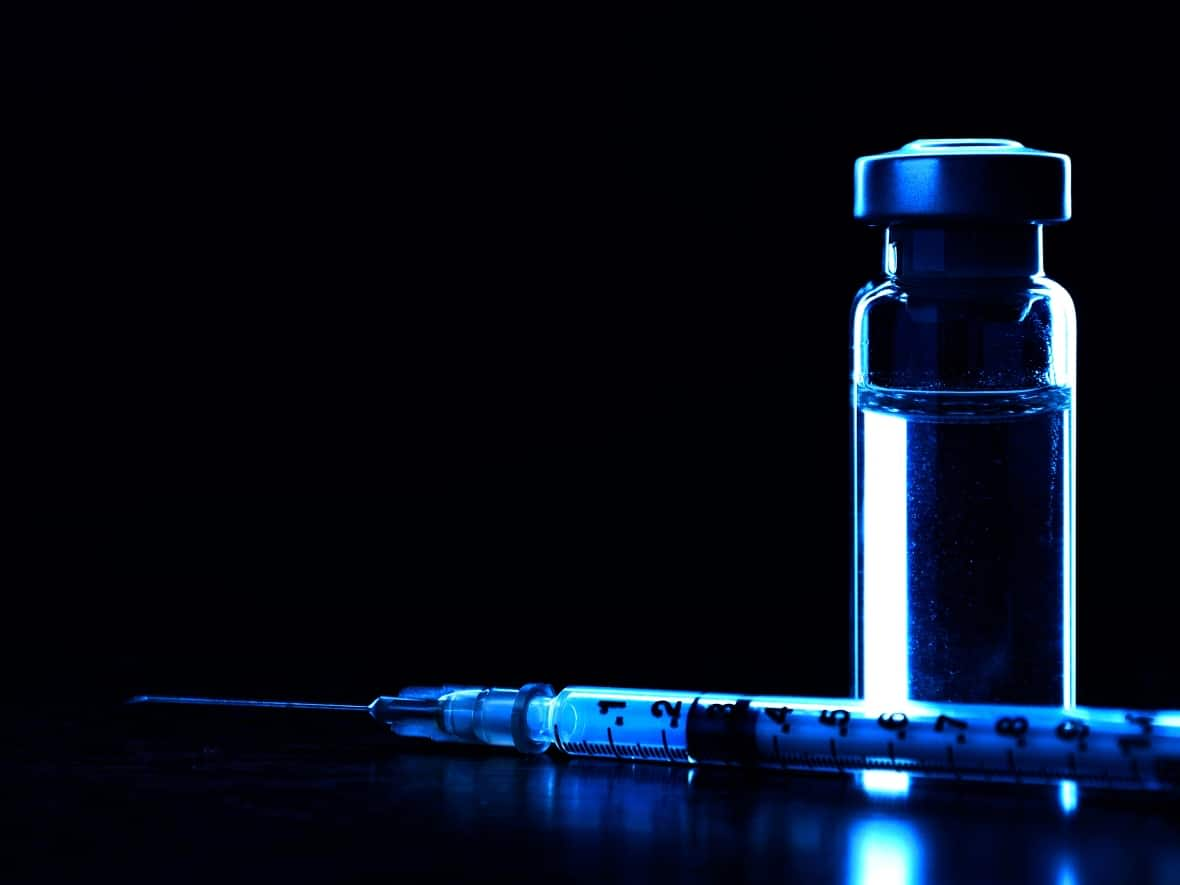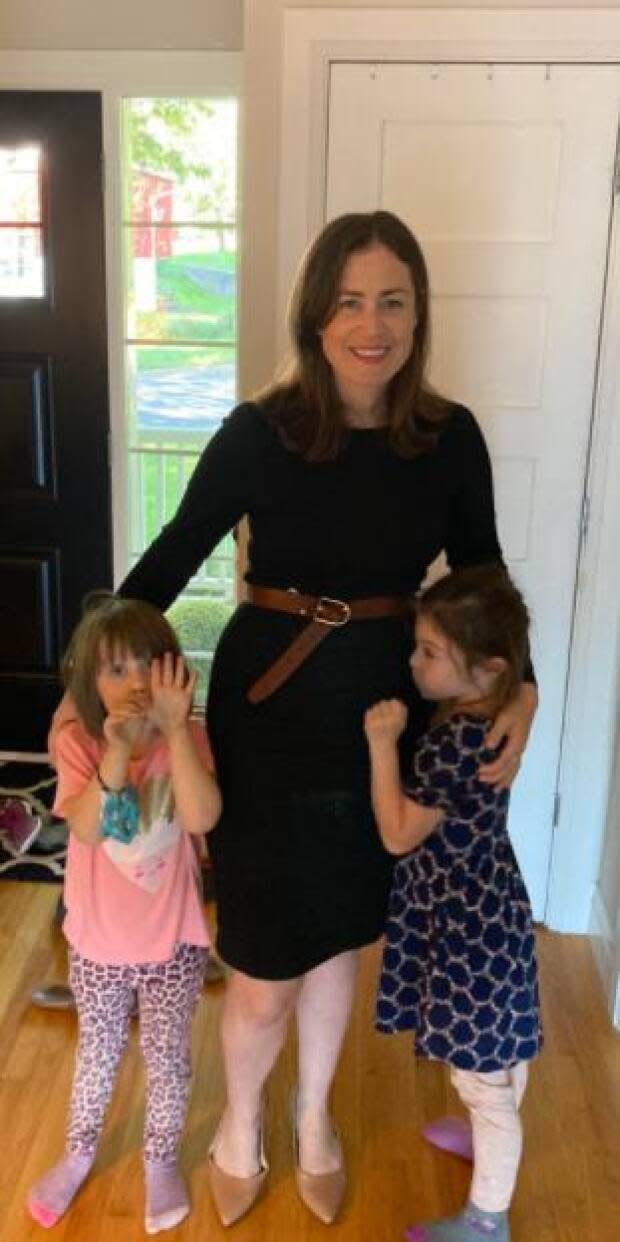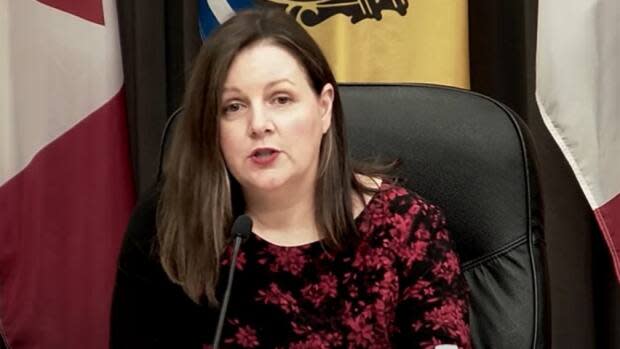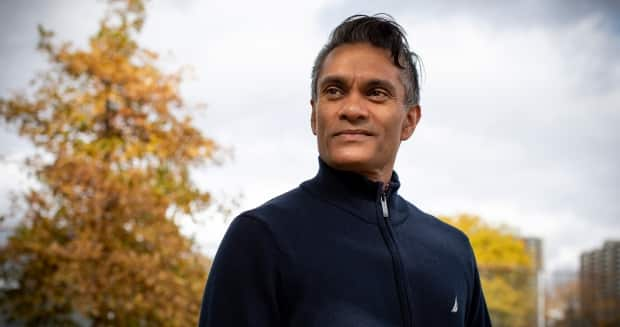Parent urges quicker 2nd doses for N.B. children five to 11

The New Brunswick government is being urged to let parents get their young children a second dose of COVID-19 faster than the current mandatory eight-week interval in response to the spread of the Omicron variant.
Jane Thomson, a mother of two who teaches law at the University of New Brunswick, says the province should allow parents to choose the three-week interval that was authorized, though not recommended, by federal authorities.
That would match what's being done in some other provinces, including Ontario and Quebec.
"The chaotic school-daycare illogical mess aside, I want, or would like to be able, to protect my children, or at least be not prevented from protecting my children as much as possible," Thomson said.
Before Christmas, Thomson spoke to a pharmacist about bringing her children, aged five and seven, for second doses. She was told they could come back after the holidays as walk-ins, even though they would not have been at the eight-week mark.

"When I called after Christmas, they said, 'I'm sorry, we can't do that anymore. We've received a letter from the New Brunswick government expressly prohibiting us from doing this.'"
In November, the National Advisory Committee on Immunization recommended an eight-week delay between first and second doses for children aged 5 to 11.
But it authorized a shorter delay of just 21 days because that was the duration Pfizer used in its clinical trials.
Shorter intervals between doses can lead to lower antibody levels, which could lead to protection waning more quickly over time, NACI said.
"There is no direct evidence to establish an optimal interval between doses in pediatric populations," the committee said in a statement on Nov. 19.
But it noted that a longer interval in adults has been found to improve the immune response and is associated with greater vaccine effectiveness that lasts longer.

Chief Medical Officer of Health Dr. Jennifer Russell pointed to that "drawback" Tuesday.
"We are spacing it out according to NACI," said Russell, who acknowledged she's seen many questions about the interval. "I do hear what you're saying."
But she said there were many factors affecting how the province is delivering vaccines.
"It's really a balance of resources, et cetera, and ramping up as much as we can to protect everyone at the same time."
Thomson said she was told by one pharmacist this week that they had to throw away some pediatric doses because they haven't had enough children aged five to 11, "so we know it's not a supply issue."
She said she understands the risk of waning protection down the road but believes the tradeoff is worth it now, given how contagious and fast-spreading Omicron is.
"It's about making the decision weighing what may be the better choice based on a recommendation based on the adult dosages versus the reality, which is COVID is everywhere," Thomson said.
Other jurisdictions
In Ontario, parents are allowed to choose to get their kids a second dose after three weeks and some doctors have been offering them that option, especially if the children are immunocompromised.
"I'd probably stick with what NACI is saying, but it's an individual choice," said Dr. Gerald Evans, chair of the infectious diseases division at the Queen's University school of medicine.
"That blanket policy is probably not a perfect one."
Evans said there is evidence that administering vaccines in general with shorter intervals can provide more durable responses in children than in adults.
University of Ottawa epidemiologist Raywat Deonandan said eight weeks is the "sweet spot" for efficacy, duration and lesser risk of serious reactions to vaccines, but Omicron has changed his thinking.

"The small advantage that kids get from waiting eight weeks is outweighed by the great advantage in getting early two-dose protection, given the serious risk of exposure and infection now rather than eight weeks from now," he said.
University of Toronto epidemiology professor Dr. David Fisman said in a recent tweet he has also changed his mind and is endorsing the shorter wait.
"I understand the concerns about durability, but risk is NOW," he said Jan. 2.
Thomson said if the downside is waning efficacy a few months from now, boosters can address that.
"I'm not saying that every child has to do this, but why am I being prevented from double dosing my children based on the Pfizer trials and based on science?"
Jake Reid, the New Brunswick Pharmacists Association executive director, wouldn't say if the organization supports giving parents the right to choose shorter intervals.

"As immunizers for the province's COVID vaccination program, New Brunswick pharmacists follow New Brunswick Public Health directives and guidelines," he said.
Vaccination appointments for children aged five to 11 opened on Nov. 23, meaning none of the children vaccinated that week are eligible for second doses until later this month.
Thomson's children had their first doses Dec. 8.
She described their home learning as a mess and said getting more kids vaccinated sooner might allow schools to reopen safely sooner.
"I think that it's essential that we do this," she said. "I don't know if it allows them to return to school sooner or not, but it's the only safe way to return to school."


